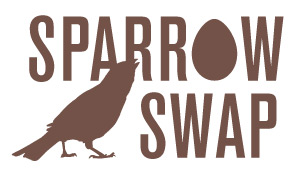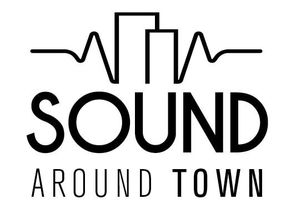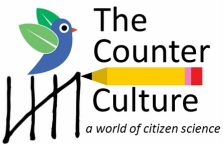Crowd the Tap for safe drinking water
Crowd the Tap is recruiting High School Science Teachers for Fall 2021!
Are you a high school environmental sciences teacher interested in engaging students in scientific research that applies to their everyday lives? Do you live in a city with issues of lead-in-drinking-water? Become a Crowd the Tap Teacher! Crowd the Tap offers two opportunities. Visit CrowdtheTap.org/Ambassadors to learn more!
To participate, visit CrowdtheTap.org
Crowd the Tap is recruiting High School Science Teachers for Fall 2021!
Are you a high school environmental sciences teacher interested in engaging students in scientific research that applies to their everyday lives? Do you live in a city with issues of lead-in-drinking-water? Become a Crowd the Tap Teacher! Crowd the Tap offers two opportunities. Visit CrowdtheTap.org/Ambassadors to learn more!
To participate, visit CrowdtheTap.org
Citizen Science - Research by you, for you...and for the birds!

The Sparrow Swap is a citizen science project in which volunteers collect and donate house sparrow eggs to the Collections at the North Carolina Museum of Natural Sciences.
The Sparrow Swap has two distinct goals. The shorter term goal is to collaborate with volunteer nest monitors across the country to compare the effectiveness of strategies to minimize damage by house sparrows on bluebirds and other native species. The longer term goal is to assess the potential of house sparrow eggs as a tool for communities to quickly and inexpensively map environmental contaminants.
To take part in the Sparrow Swap, sign up via SciStarter at www.scistarter.com/sparrowswap
The Sparrow Swap has two distinct goals. The shorter term goal is to collaborate with volunteer nest monitors across the country to compare the effectiveness of strategies to minimize damage by house sparrows on bluebirds and other native species. The longer term goal is to assess the potential of house sparrow eggs as a tool for communities to quickly and inexpensively map environmental contaminants.
To take part in the Sparrow Swap, sign up via SciStarter at www.scistarter.com/sparrowswap
Stewardship of Bluebirds and Reducing Impact of House Sparrows
House sparrows, a non-native, ubiquitous species lives where humans lives, on farms and in cities. We have a global distribution, and so they do too. In the US, House sparrows compete with native species for limited nesting sites, and therefore are considered undesirable to many who manage lands and nest boxes for bluebirds. The House sparrow is exempt from the protections of the Migratory Bird Treaty Act. The North American Bluebird Society lists some sparrow-control practices but these have not been rigorously investigated for their large-scale effectiveness.
House Sparrows as Bioindicators
Many birdwatchers in the United States routinely remove and discard non-native house sparrow eggs every year (legally) in hopes of protecting nest sites for native songbirds. Irrespective of participation in The Egg Swap, I'd like bird watchers to donate house sparrow eggs for curation at the North Carolina Museum of Natural Sciences. From curated eggs, we can potentially assess levels of flame retardants, heavy metals, pesticides, PCBs, and other contaminants that bioaccumulate in House Sparrow eggs. If House Sparrow eggs are an accurate biomarker reflecting human exposure, then their eggs could be useful for contaminant mapping, community-based monitoring, and other research activities.
House sparrows, a non-native, ubiquitous species lives where humans lives, on farms and in cities. We have a global distribution, and so they do too. In the US, House sparrows compete with native species for limited nesting sites, and therefore are considered undesirable to many who manage lands and nest boxes for bluebirds. The House sparrow is exempt from the protections of the Migratory Bird Treaty Act. The North American Bluebird Society lists some sparrow-control practices but these have not been rigorously investigated for their large-scale effectiveness.
House Sparrows as Bioindicators
Many birdwatchers in the United States routinely remove and discard non-native house sparrow eggs every year (legally) in hopes of protecting nest sites for native songbirds. Irrespective of participation in The Egg Swap, I'd like bird watchers to donate house sparrow eggs for curation at the North Carolina Museum of Natural Sciences. From curated eggs, we can potentially assess levels of flame retardants, heavy metals, pesticides, PCBs, and other contaminants that bioaccumulate in House Sparrow eggs. If House Sparrow eggs are an accurate biomarker reflecting human exposure, then their eggs could be useful for contaminant mapping, community-based monitoring, and other research activities.

Launching in Fall 2017, Sound Around Town is a citizen science project with several options for assisting in the study of soundscapes. With a mobile web app, participants carry out meditative listening sessions and share emotional perceptions of sounds as well as log sounds they can identify. The study is focused on understanding disparities in soundscapes across urban and suburban residential areas, though participants can carry out listening and logging session anywhere. Another component of Sound Around Town will involve borrowing sound record equipment (which we plan to loan through public libraries) to record soundscapes in backyards in select cities.

